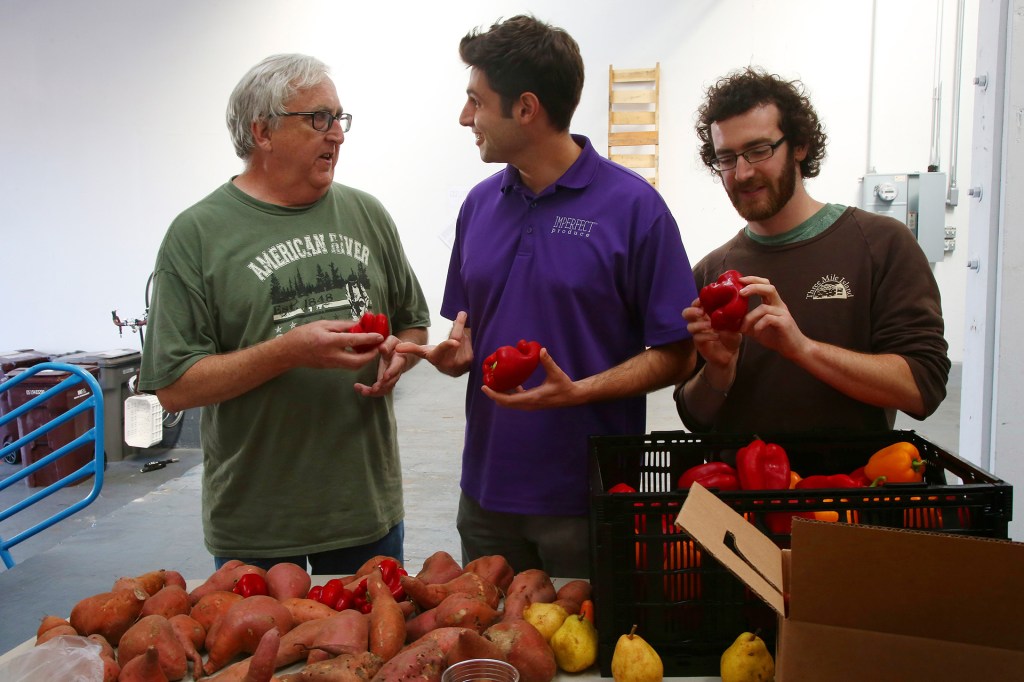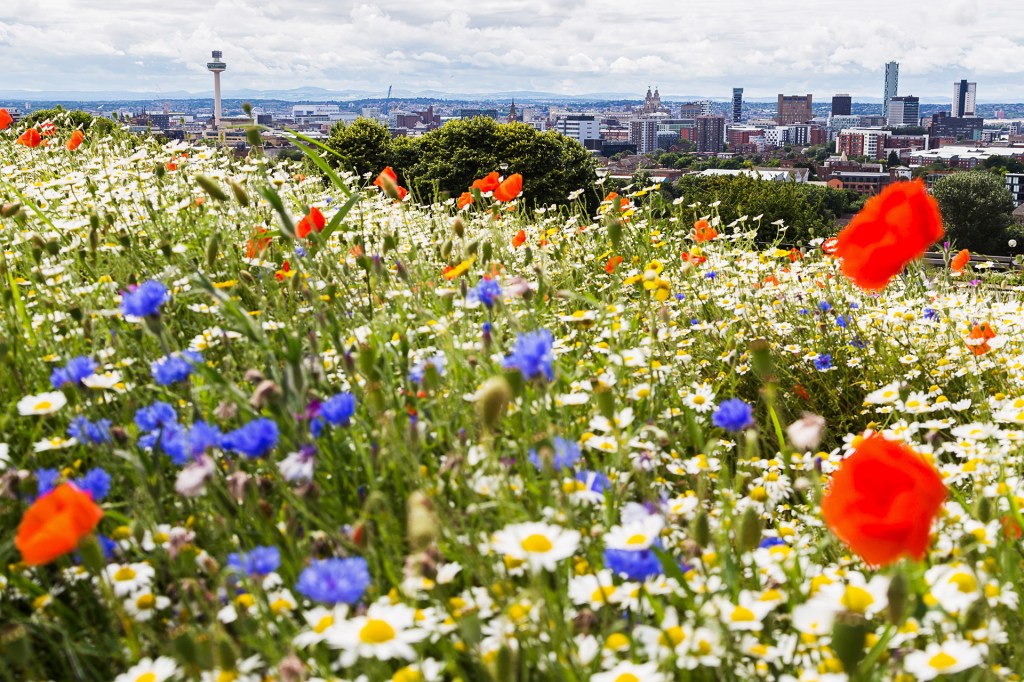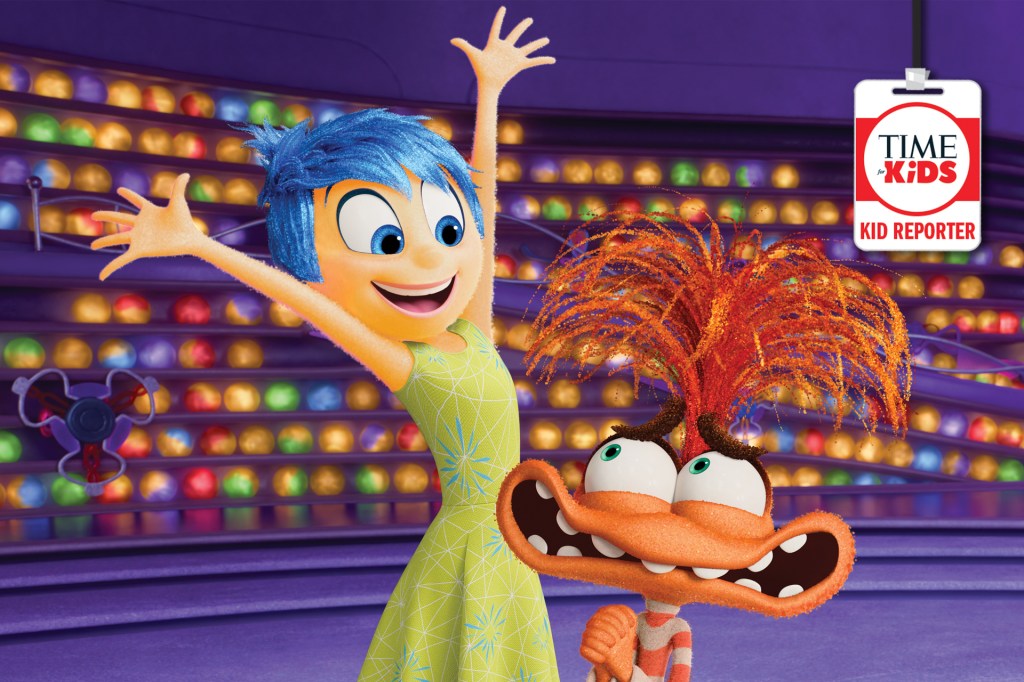Waste Not
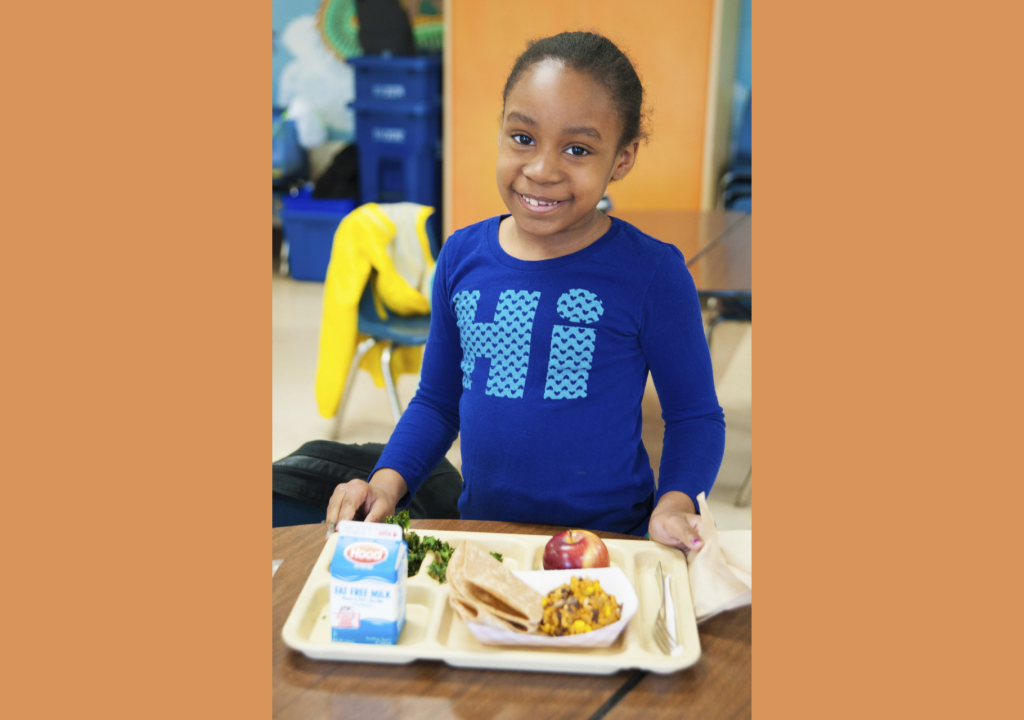
Each weekday, some 30 million students in the United States eat a school lunch. Then they fill cafeteria trash cans with uneaten food.
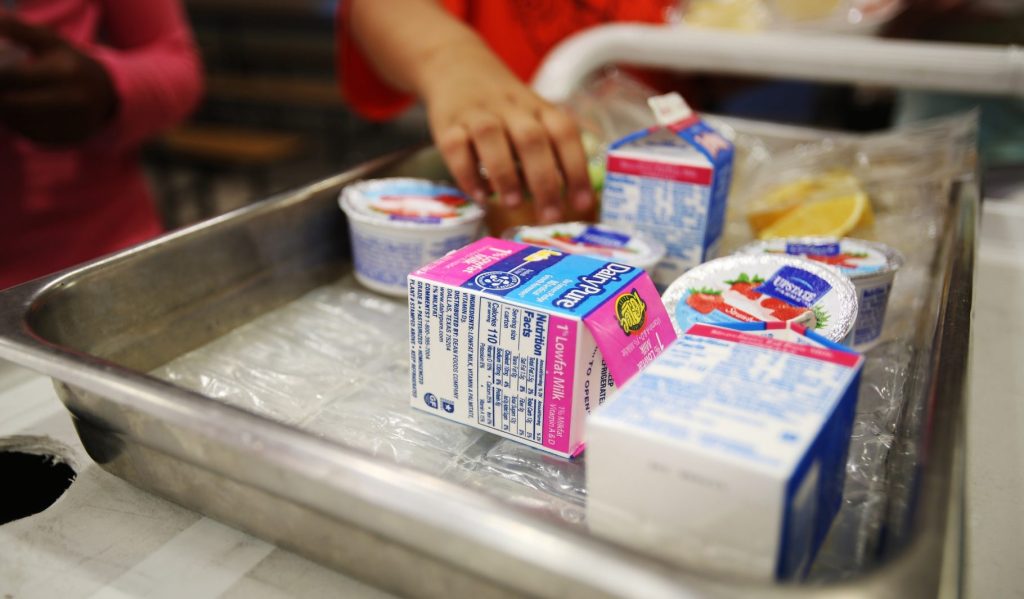
A student puts food on a share table. What is not taken by other students will be reused or donated.
Ricardo Ramirez Buxeda—Orlando Sentinel/TNS/Getty ImagesWasted food is a waste of money, a missed chance to feed hungry people, and bad for the environment. That’s why schools are trying to reduce the amount of food that winds up in the trash. “We don’t want good food to go to waste,” Nancy Deming told TIME for Kids. She works for the Oakland Unified School District, in California.
Fighting Food Waste
Schools have several ways to cut down on food waste. Students are often hungrier after active play, so having lunch after recess can reduce waste. Making the lunch period longer also helps. It gives kids more time to eat.
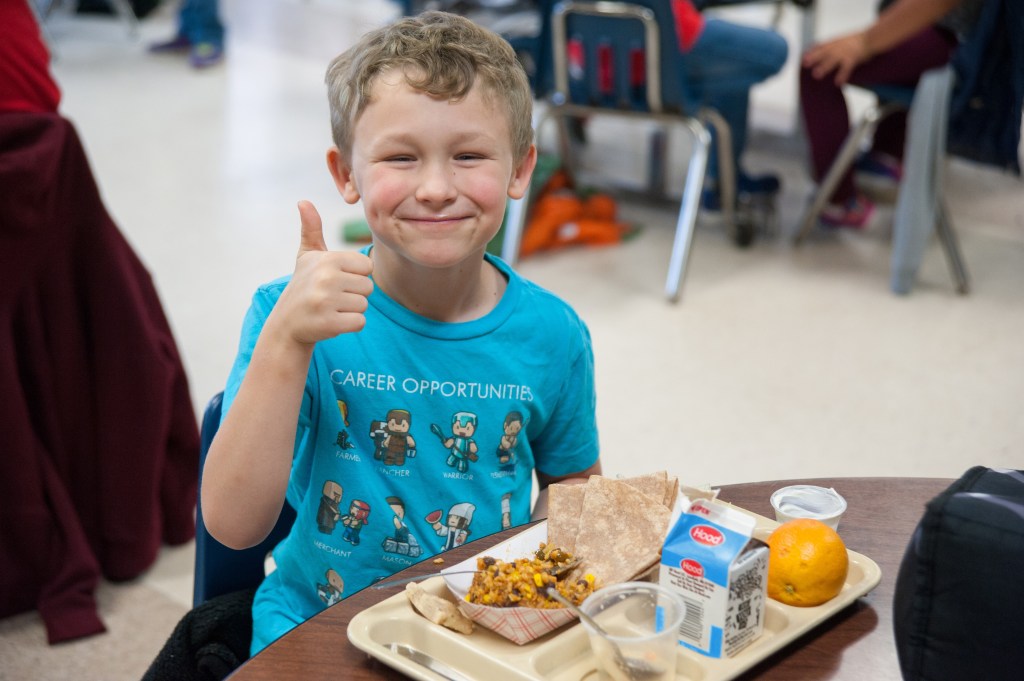
A Massachusetts student enjoys his meal from the Chefs in Schools program.
HEATHER KATSOULIS COURTESY PROJECT BREAD
In Oakland, schools set up share tables. Students put untouched food on the share tables, and other students can take the food if they want it. Uneaten food is served another day or donated to charity. Food scraps are turned into compost
compost
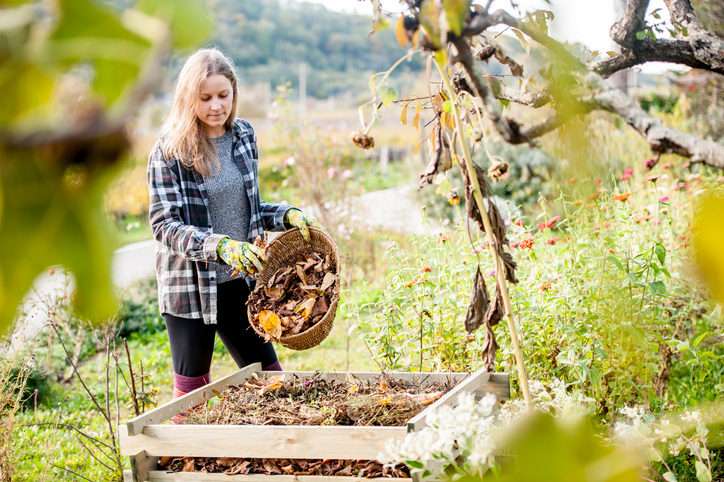 CASARAGURU/GETTY
decayed organic material used as plant fertilizer
(noun)
My mom uses compost in her garden.
.
CASARAGURU/GETTY
decayed organic material used as plant fertilizer
(noun)
My mom uses compost in her garden.
.
Taste Test
Sometimes, students waste food because they don’t like how it tastes. Chef Sam Icklan wants to change that. Icklan works for a program called Chefs in Schools. He helps cafeteria staff create recipes kids enjoy.
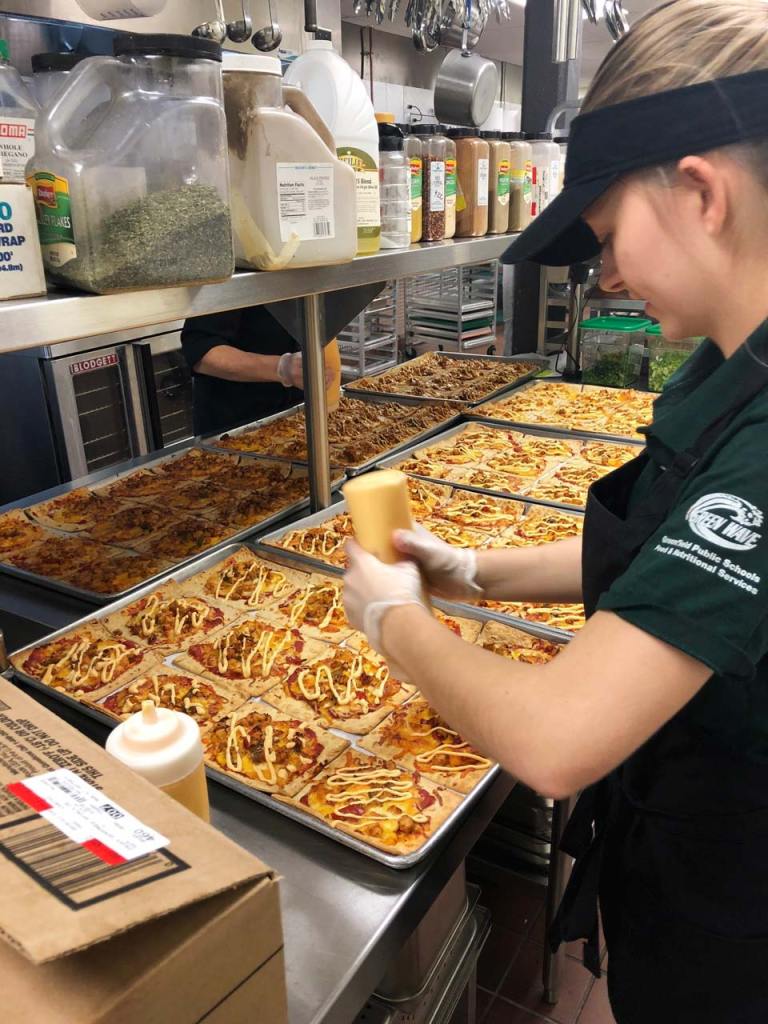
A cook prepares spicy chicken flatbread. The recipe was made to cut down on waste.
PROJECT BREAD
In one school, kale often went untouched. Icklan used the kale as a pizza topping and called the dish Green Monster Pizza. Kids loved it. “It became this beautiful, vibrant
vibrant
 ARTUR WIDAK/NURPHOTO/GETTY IMAGES
bright; full of life
(adjective)
The dancer's headdress was full of vibrant colors.
dish,” he says. “Who wouldn’t eat that?”
ARTUR WIDAK/NURPHOTO/GETTY IMAGES
bright; full of life
(adjective)
The dancer's headdress was full of vibrant colors.
dish,” he says. “Who wouldn’t eat that?”
Fight Waste
Buy “ugly” fruits and veggies. They’re just as tasty as perfect-looking produce.
Read safety labels. “Best before” means it’s safe a little while after that date. “Use by” means it’s no longer safe after that date.
Start with small portions. If you’re still hungry, you can take more later. After meals, use scraps for compost.





